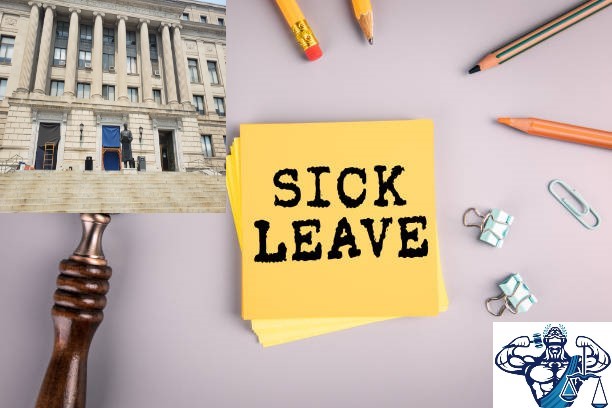Are you looking for legal representation? How much do you value your time and hard-earned money? Then look no further because whenever you require legal representation, the Law Offices of Vincent Miletti, Esq., the Strongest Name in Law, got your six. We are the authoritative force in Employment & Labor Law, providing diverse legal services in both a traditional and online, web-based environment, whether it be for small or large-scale businesses on a panel or a case-by-case basis. Hitherto, serving as primary counsel or cumis counsel, we are not only taking over the industry when it comes to Employment Defense and Employment Practices, but also in Intellectual Property Defense (Trademark, Copyright, and Proprietary Information), Management Side Defense, Regulatory and Compliance, Business Law & Corporate Law, and Professional Liability, among others. Whether serving directly or on behalf of a third party (EPLI, D&O, E&O), we stay unusually motivated® to take on all your needs!
You can agree with us that, at times, getting the right legal representation and finding a good attorney feels like trying to catch a fish while running away from a twenty-foot-high tide, especially when time and money are of the essence and the pressure of getting results before you move too far down the rabbit hole is building up. Certainly, only when you desperately need reliable legal representation, probably not from the types of Saul Goodman, will you understand the importance of having the right attorney by your side. So, do you need an attorney with the skills and legal expertise that match your needs? Operating in Brooklyn, New York, the larger New York City, and New York State, as well as in the firm’s new office located in Astoria Queens, your life-changing encounter with Vinny Miletti Esq., the founder and owner of Miletti Law®, whose legal expertise, knowledge, and experience has grown immensely over time since the firm first opened its doors is just an email and/or a call.
Still, in addition to providing legal services, you can concur with us that information is power, and, as such, we have diligently committed ourselves to creating a range of authoritative, trustworthy, and engaging content available on our website and social media platforms. In this regard, feel free to visit and follow us on Facebook, Instagram, Twitter, Yelp, and LinkedIn via the website, as well as subscribe to our Blog, YouTube Channel, and News Letter through https://milettilaw.com/blog and https://www.youtube.com/@MilettiLaw, and https://milettilaw.com/#7665b240-0790-4562-ac0f-9444f9f5165a, respectively, to enjoy such content aimed to keep our unusually motivated® readers informed about how diverse legal issues affect them and/or their businesses.
In this regard, this blog is Part X of our series, “Key Workplace Policies and Employee Handbooks.” In Part IX, we examined the requirements of New York law when it comes to including provisions or statements concerning “wage and hour” and benefits in employee handbooks and mentioned that an employer must be cognizant of its mandate under both the federal and state laws when adopting a wage and hour policy in employee handbooks. We also added that while it contains several provisions that dictate salary thresholds for overtime exemptions and higher levels of minimum wage, the NYMWA has more stringent demands for employers within New York when it comes to hourly wage and compensation. Another key thing we noted is that the stricter standard should be applied in the case of a conflict between the state and federal laws.
Still stuck on the same gear, this blog is titled “New York labor Law on Complying with General Office Policies in Employee Handbooks” and is a review of key insights into the various general office policies that the law in New York requires to be included in employee handbooks.
New York labor Law on Complying with General Office Policies in Employee Handbooks
The importance of an employee handbook to an employer cannot be stressed enough. We assert that an employee handbook is one of the most important documents an employer should have at hand because, among other key aspects, it contains the corporate policies, values, rules, and culture of an organization, a business, or a company.
While some are mandated under the law, and others are not, some of the most critical general office policies that should be featured in an employee handbook include, but are not limited to, computer and internet policies, media contact policies, vacation policies, reimbursement policies, dress code policies, working hours, and travel policies. It is critical to note that the state of New York has a number of laws that provide guidelines and offer insights into the responsibilities of both an employer and employee when it comes to some of these policies. This goes without saying that every employer must take proactive steps to understand what the different laws say about these key policies and the elements that should characterize them when being included in employee handbooks.
For instance, as codified under N.Y.C. Admin. Code § 8-102, employers in New York City should be aware that the City prohibits them from enforcing dress codes that impose varying uniform or grooming requirements on the basis of gender. The law requires policies concerning the dress code to be gender-neutral.
Employers in New York should also take caution when including policies regarding personal appearance and grooming in employee handbooks. Title VII of the Civil Rights Act (aka Title VII) does not usually oblige employers to provide employees with exemptions to personal appearance and grooming policies for employee’s religious beliefs. Notably, it has been recognized by courts that, in order to present a workforce that is reasonably professional in appearance to clients or customers, employers have a legitimate interest in upholding grooming standards for employees interacting with clients or customers regularly in the employers’ service to the public.
We also added that it is crucial to note that there may be different requirements under many state laws when it comes to personal appearance and grooming. For instance, as provided for in clause N.Y. Exec. Law § 296(10)(a), employers are required by the New York State Human Rights Law to provide employees with reasonable accommodations with regard to facial hair, clothing, or any attire as per employees’ religious beliefs. Furthermore, it is the duty of employers to engage employees in interactive processes when considering a reasonable accommodation (one that would eliminate the conflict with the employee’s religious beliefs), especially when dealing with personal appearance and grooming policies. This means employers should be aware of such regulations and laws before including policies concerning personal appearance and grooming in employee handbooks.
As noted in the blog mentioned above, it is also worth mentioning that while they could now be a source of religious accommodation claims, hairstyle laws that typically concern race have been added in several states, including New York, California, Colorado, Virginia, and New Jersey. Specifically, New York has, through the executive order N.Y. Exec. Law § 292(37), included traits historically associated with race, such as hairstyle and hair texture, as part of the definition of race in the state’s amendment of the New York State Human Rights Law. Employers in New York must employ these laws and regulations as a guide when creating and including dress code, personal appearance and grooming, and hairstyle policies in employee handbooks.
In Part XI of this series and our blog titled “NY Law on Employee Privacy & Company Devices in the Workplace,” we will review a number of key issues for employers when it comes to employee privacy and company devices in the workplace.
As usual, stay tuned for more legal guidance, training, and education. In the interim, if there are any questions or comments, please let us know at the Contact Us page!
Always Rising Above the Bar,
Isaac T.,
Legal Writer, Author, & Publisher.
 Professional Legal & Business Services And Representation - English & Espanol!
Professional Legal & Business Services And Representation - English & Espanol!

 314-648-2586
314-648-2586 CALL US NOW
CALL US NOW








